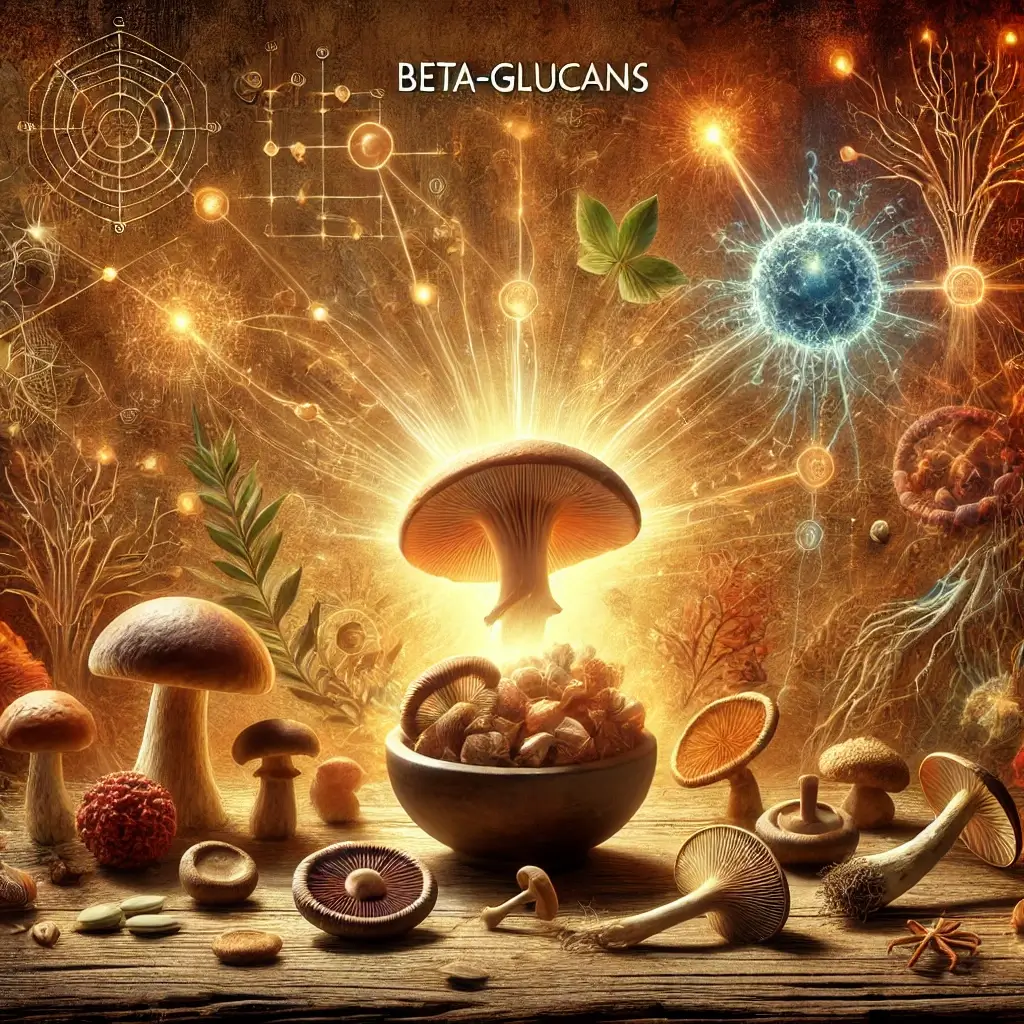Protective Properties for Neurological Health
Beta-glucans have been found to protect nerve cells from damage caused by oxidative stress and inflammation. This is important because nerve cell damage can lead to a variety of neurological conditions, including Alzheimer’s disease, Parkinson’s disease, and multiple sclerosis. By protecting nerve cells from damage, Beta-glucans may help to prevent or delay the onset of these conditions.
Understanding Beta-glucans
Beta-glucans are a type of polysaccharide, or complex sugar, that is found in the cell walls of certain fungi, yeasts, and bacteria. Beta-glucans have been shown to have a number of health benefits, including neuroprotective and immune-stimulating properties.
Nervous System Protection Benefits
Here are some of the ways in which beta-glucans can help to protect the nervous system:
Reduce inflammation: Beta-glucans can help to reduce inflammation in the brain and nervous system. Inflammation is a major contributor to a number of neurological disorders, including Alzheimer’s disease, Parkinson’s disease, and multiple sclerosis.
Promote nerve growth and repair: Beta-glucans can help to promote the growth and repair of nerve cells. This can be beneficial for people with neurological disorders, such as spinal cord injuries.
Protect against neurotoxicity: Beta-glucans can help to protect nerve cells from damage caused by toxins. This can be beneficial for people who are exposed to neurotoxic substances, such as pesticides and herbicides.
Immune System Enhancement
Here are some of the ways in which beta-glucans can help to boost the immune system:
Activate immune cells: Beta-glucans can activate a variety of immune cells, including macrophages, neutrophils, and natural killer cells. These cells play a key role in defending the body against infection.
Increase antibody production: Beta-glucans can help to increase the production of antibodies, which are proteins that help to fight infection.
Enhance the immune response to vaccines: Beta-glucans can help to enhance the immune response to vaccines, making them more effective.
Availability and Forms
Beta-glucans are available in a variety of forms, including capsules, powders, teas, and extracts. They can also be found in certain foods, such as mushrooms, oats, and barley.
Medical Considerations
If you are considering taking beta-glucans, it is important to talk to your doctor first. Beta-glucans can interact with certain medications, so it is important to be aware of the potential risks and benefits before taking them.
Research and Potential
Overall, beta-glucans are a promising natural compound with a number of potential health benefits, including neuroprotective and immune-stimulating properties. More research is needed to fully understand the benefits of beta-glucans, but they may be a valuable tool for supporting overall health and well-being.
Additional Immune Benefits
In addition to their neuroprotective properties, Beta-glucans also have immune-stimulating effects. They can activate immune cells in the body, which can help to fight off infections and diseases. This is important because a healthy immune system is essential for overall health and wellness.
Medicinal Mushroom Sources
There are many different types of medicinal mushrooms that contain Beta-glucans, including shiitake, maitake, reishi, and cordyceps. These mushrooms can be consumed in various forms, including as a tea, supplement, or added to food.
Wellness Applications
Overall, the neuroprotective and immune-stimulating properties of Beta-glucans found in medicinal mushrooms make them a valuable addition to any wellness routine. Incorporating these mushrooms into your diet may help to support a healthy nervous system and overall well-being.
References
1. Chen J, Raymond K. Beta-glucans in the treatment of diabetes and associated cardiovascular risks. Vasc Health Risk Manag. 2008;4(6):1265-1272.
2. Vetvicka V, Vetvickova J. Beta-glucans and their potential role in combination therapy. Anticancer Res. 2017;37(9):4925-4931.
3. Bashir KMI, Choi JS. Clinical and physiological perspectives of β-glucans: The past, present, and future. Int J Mol Sci. 2017;18(9):1906.
4. Wasser SP. Medicinal mushroom science: Current perspectives, advances, evidences, and challenges. Biomed J. 2014;37(6):345-356.
5. Akramiene D, Kondrotas A, Didziapetriene J, Kevelaitis E. Effects of beta-glucans on the immune system. Medicina (Kaunas). 2007;43(8):597-606.
6. Jayachandran M, Xiao J, Xu B. A critical review on health promoting benefits of edible mushrooms through gut microbiota. Int J Mol Sci. 2017;18(9):1934.
